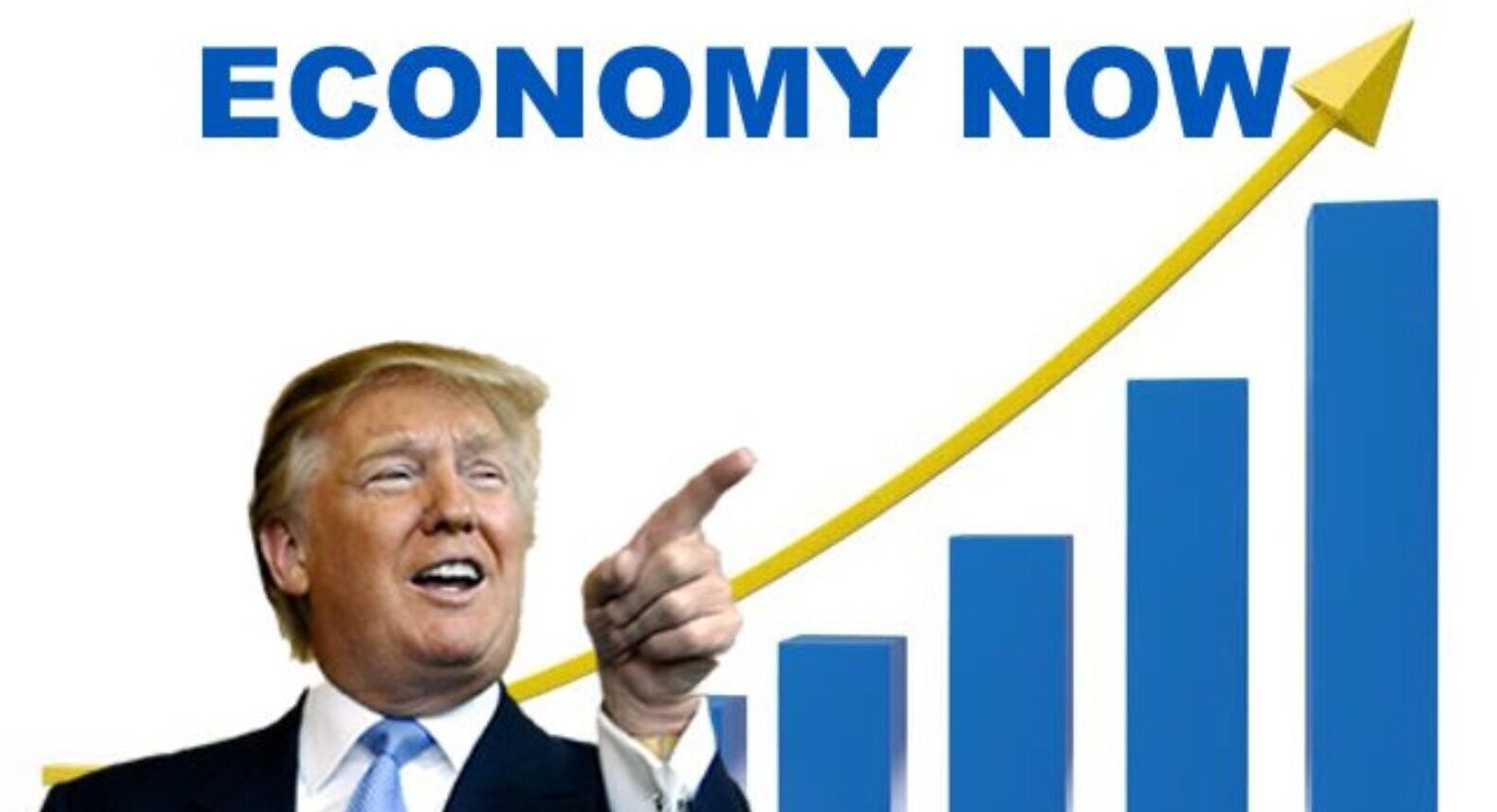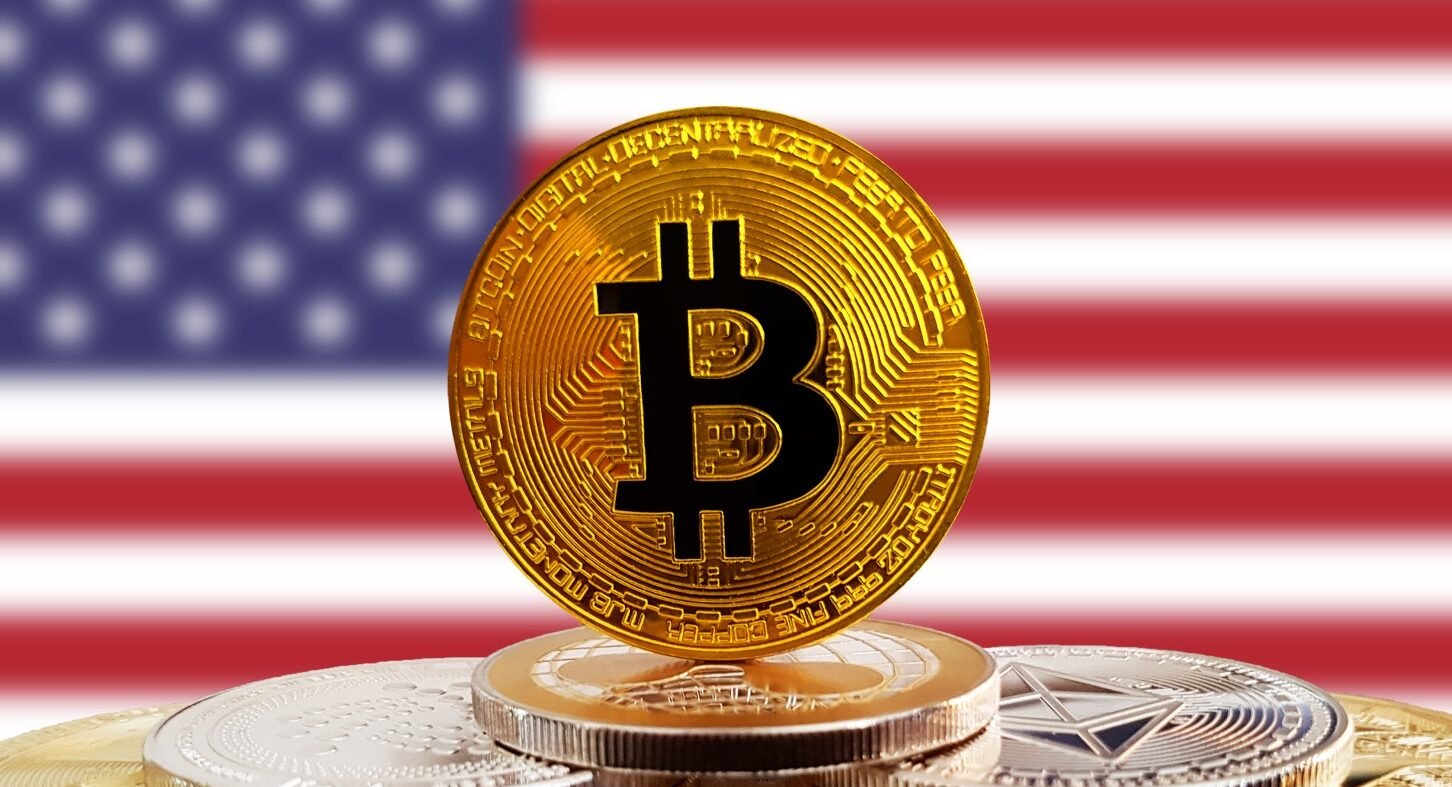Bitcoin’s recovery. As of the most recent trading sessions, Bitcoin Price has proven its resiliency at around $95,000. This price stabilization occurs during increased economic uncertainty due to U.S. President Donald Trump’s conflicting messages on the economy, trade treaties, and tariffs. Although Bitcoin’s recovery has kept its value rather well, the market is still closely entwined with more general economic events, especially concerning Trump’s policies and their influence on conventional and digital financial markets.
Trump’s Economic Outlook
President Trump has recently expressed optimism about the U.S. economy. He pointed to solid stock market gains, a lower-than-expected unemployment rate, and strong job reports as signs that the economy is on the right track. Trump also took to social media, reinforcing his stance that the economy is in excellent shape under his leadership. In particular, he highlighted a stock market rally and increased consumer confidence, painting an upbeat picture for the country’s economic future.
 However, Trump has also tempered this optimism with mixed signals, acknowledging the possibility of an economic slowdown or recession. In a recent interview on NBC’s “Meet the Press,” Trump admitted, “Anything can happen,” when asked about the prospect of a recession. These conflicting messages have left many financial markets in a state of uncertainty. The mixed signals have raised questions about the future of traditional markets, such as stocks and bonds, and the fate of alternative assets like Bitcoin.
However, Trump has also tempered this optimism with mixed signals, acknowledging the possibility of an economic slowdown or recession. In a recent interview on NBC’s “Meet the Press,” Trump admitted, “Anything can happen,” when asked about the prospect of a recession. These conflicting messages have left many financial markets in a state of uncertainty. The mixed signals have raised questions about the future of traditional markets, such as stocks and bonds, and the fate of alternative assets like Bitcoin.
Trump’s Trade Wars
Trump’s approach to trade deals—especially the administration’s continuous negotiations with China, Mexico, and other worldwide trading partners—has been one of the leading causes of market anxiety. Trump has often extolled the advantages of trade agreements, implying that the United States might get better terms and open new markets for American companies. The government has focused on lowering the trade deficit between the United States and other nations, motivating other countries to boost their purchasing of American products.
Still, the placement of taxes on certain imports has complicated these initiatives. Since 2018, the trade war with China has remained one of the primary causes of economic instability. From electronics to agriculture, the tariffs on Chinese goods have impacted a broad spectrum of sectors, driving costs and upsetting supply chains. Though several problems continue, the government’s attempts to negotiate a “phase one” agreement with China in early 2020 helped to lower tensions momentarily. Moreover, fresh levies on other nations—including Mexico and Canada—have aggravated world trade conflicts.
These changes result in market volatility. Though usually seen as a counter against inflation and economic uncertainty, Bitcoin has not been exempt from the consequences of trade-related doubt. Following rumors of increased duties on imports from Mexico and China, Bitcoin fell sharply to about $96,749. Fears of growing inflation and further economic downturn drove investors to safer assets, causing a larger market sell-off at the news.
Bitcoin’s Resilient Recovery
Despite the challenges of trade tensions and tariff wars, Bitcoin has shown impressive resilience. After the initial drop, the price of Bitcoin rebounded, hovering around $95,000 recently. Many market analysts attribute this rebound to several factors. One key factor is the delay in implementing specific tariffs, offering a reprieve for traditional markets and Bitcoin investors.
Another reason for Bitcoin’s recovery is the continued interest from institutional investors. Firms like Strategy (formerly MicroStrategy) have made substantial investments in Bitcoin, demonstrating an increasing institutional recognition of the cryptocurrency as a valuable asset. Institutional adoption is a key driver for Bitcoin’s long-term growth, as it introduces a higher level of legitimacy and stability to the market.
Moreover, Bitcoin’s decentralized nature, which allows it to operate outside the control of governments and central banks, continues attracting investors seeking alternatives to traditional financial systems. In times of economic uncertainty, digital assets like Bitcoin are often seen as a haven, a perception that has grown as the U.S. dollar weakens due to inflationary pressures.
U.S. Policies and Bitcoin
Global financial markets’ interdependence makes changes in U.S. policies—especially those concerning trade and tariffs—have broad effects. For conventional markets and digital assets like Bitcoin, the contradictory economic signals from President Trump and the changing character of trade treaties have generated an unstable atmosphere.

Analysts believe that the price of Bitcoin could be quite susceptible to potential changes in the U.S.-China trade conflict, especially should further tariffs be applied or trade talks stall. The price swings of Bitcoin in reaction to macroeconomic events highlight its function as both a risk asset and a possible counterpoint against systematic financial hazards. Especially in economic and geopolitical instability, the performance of crypto ETFs has often reflected the market attitude.
Final thoughts
The price of Bitcoin will probably stay erratic as the world economy struggles with uncertainties over trade deals and economic development. The ability of Bitcoin to weather financial challenges may depend on the direction of U.S. monetary policies under Trump’s leadership. Should trade discussions go well, Bitcoin may continue its rising trend as investor confidence rises. On the other hand, should trade tensions rise or the U.S. economy exhibit indications of a more severe downturn, Bitcoin’s price may suffer downward pressure; However, it is doubtful that it would revert to its former lows.
Finally, Bitcoin’s price, around $95,000, reflects continuous global economic uncertainty, especially the conflicting signals from American economic policies and trade negotiations. Bitcoin will probably remain a gauge of investor mood in a fast-changing financial environment as President Trump negotiates a careful mix of hope and prudence. The fact that Bitcoin withstands difficult circumstances shows its possible importance in the future of the world economy. Still, the road ahead is unknown, and the wider economic climate will always significantly affect Bitcoin’s course.

